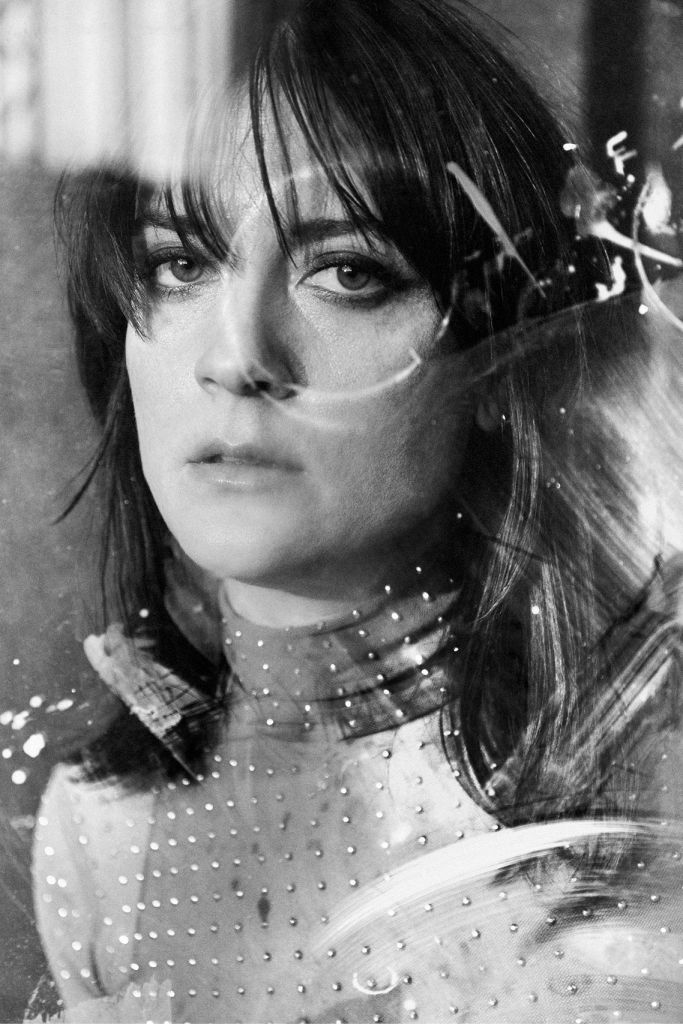Stage director Christina Tscharyiski in exchange with aspiring young actors
“When I talk with people in their early 20s, I notice how they belong to a generation that expects different things of theatre and theatrical careers. It’s great being able to strike up a conversation with this young generation and give them something based on my own practical experience.” Director Christina Tscharyiski, born in Vienna in 1988, has been looking forward quite a bit to her involvement with the Max Reinhardt Seminar as a visiting director this summer semester. She’s now hard at work with the third-year acting class on a staged production of Elfriede Jelinek’s text Sonne, los jetzt!, and their première is scheduled to take place on 23 May at Schlosstheater Schönbrunn. It’s with this production that the students will also present themselves this coming July at the Schauspielschultreffen, a festival for acting schools in Frankfurt.

For ten years, now, Christina Tscharyiski has been directing productions at renowned theatres—most recently Der Raub der Sabinerinnen with the company Schauspiel Frankfurt. She has also directed multiple productions of the Berliner Ensemble including works such as Jelinek’s Schwarzwasser. The venues where she has worked also include Vienna’s Burgtheater, the Münchner Volkstheater, and the Düsseldorfer Schauspielhaus. Tscharyiski launched her career at the Rabenhof Theater in Vienna. She began with an unpaid internship there alongside her studies at the University of Vienna (in theatre, film, and media studies as well as in sociology) and went on to work at the Rabenhof as a director’s assistant as well as at the Theater in der Josefstadt, the Salzburg Festival, and the Burgtheater. “While employed as a director’s assistant, I also began staging my own productions at the respective theatres—which was anything but a smooth path,” she remarks. She eventually quit her employment, turned her back on theatre, and set out to travel the world. “It had come to feel like I was at the theatre all day and all night, and I needed some distance,” recalls Tscharyiski. Following this relatively brief hiatus, she returned to the Rabenhof Theater in 2017 to direct Ja, eh! Beisl, Bier und Bachmannpreis, a text by Stefanie Sargnagel: “Sargnagel was getting a lot of media attention in Germany, just then, so it was one of those moments where you end up doing the right thing at the right time. From that point onward, I started getting lots of requests to direct.” Her production was a huge success, being invited to festivals and winning the Audience Award at 2018’s Radikal jung-Festival in Munich. On her favoured repertoire, she says: “I’ve done a lot pertaining to feminist themes in recent years, and I love engaging in exchange with contemporary authors.” These include figures such as Gerhild Steinbuch, Ferdinand Schmalz, and the aforementioned Stefanie Sargnagel—with whom she will soon be working again.
Tscharyiski’s fascination with theatre began at the young age of 11, when she acted in a production by the Bulgarian director Dimiter Gotscheff at the Akademietheater: “That was the first time I’d had anything to do with theatre, and I knew right away that I was attracted to it; it was where I wanted to go.” Despite her family’s love of the arts and the fact that her father had worked for theatres on occasion as a photographer, her parents’ tendency was to discourage her from embarking on an artistic career. “However, the urge to rebel against your parents’ attitudes can also be a source of motivation,” says the director. The young actors with whom Tscharyiski is currently working provide her with new impulses of their own when it comes to reflecting on the theatrical world, which has changed quite a bit in recent years: “Back when I started doing theatre, people’s approach to their work was more self-exploitative—and it was more typical to see theatres with rigid and hierarchical structures that were led primarily by men. The younger generation strikes me as having a more healthy attitude regarding itself and the profession. They question how much self-sacrifice art should require.” By now, the greater number of women in leadership roles at theatres, the breakdown of hierarchies, and a general tendency towards working more as a team have changed lots of things for the better. In working with her students, the director places her focus on the power of the collective: “I’ve gotten the impression that theatrical careers are no longer quite as solitary as they were; there’s a desire for more affiliation. And it’s together that we can make more things happen.” Tscharyiski’s teaching draws in part on her studies in the humanities and the social sciences: “My university studies taught me how to think discursively—remaining open, questioning oneself, and discussing things as a group. Refraining from getting stuck on any single opinion or stance is a valuable strategy in theatrical work, so I attempt to instil openness and an understanding of different perspectives in my students.” The results of such collaboration are something to which the audience at Schlosstheater Schönbrunn can now look forward.
Event tip:
Sonne, los jetzt! by Elfriede Jelinek
Premiere: 23 May 2024
24 & 25 May, 27 & 28 June 2024
7:00 p.m.
Schlosstheater Schönbrunn, Schönbrunner Schlossstraße 47, 1130 Vienna
